It is so much controversy about salt these days. Some say that salt is necessary for our wellbeing, but at the same time, you constantly see and hear warnings, that salt should be reduced in the diet. So where is the truth?
Honestly, I have never been a big fan of salty foods. But I always liked some salt in my food for flavor. Although using it in moderation, I recently made a decision to reduce the intake of salt to the minimum. And here is why.
What is Salt?
Salt is also called sodium chloride (NaCl). It consists of 40% sodium and 60% chloride, by weight. Salt is harvested in two main ways: from salt mines and by evaporating sea water or other mineral-rich water. The salty flavor primarily comes from the sodium ions.
Salt has long been used for flavoring and for preserving food. It has also been used in tanning, dyeing and bleaching, and the production of pottery, soap, and chlorine. Today, it is widely used in the chemical industry.
The human body regulates how much sodium it contains. If levels are too high, we get thirsty and drink, and the kidneys speed up the process of getting rid of it. (1) And when sodium is short, the body conserves sodium by holding onto water.
Why Your Body Needs Salt?
Salt is the main source of sodium and chloride ions in the human diet. Also, some varieties of salt may contain trace amounts of calcium, potassium, iron
The fact is the human body can’t live without some sodium. The essential minerals in the salt act as important electrolytes in the body.
Why The Body Needs Sodium?
- sodium transmits nerve impulses, contracts and relaxes muscle fibers (including those in the heart and blood vessels)
- it maintains a proper fluid balance
- it plays a role in the body’s control of blood pressure
- it affects blood volume
The Role of Chloride:
- Chloride ions are regulating blood pH and pressure
- it is a crucial component in the production of stomach acid (HCl) (2)
How Much Sodium Your Body Requires?
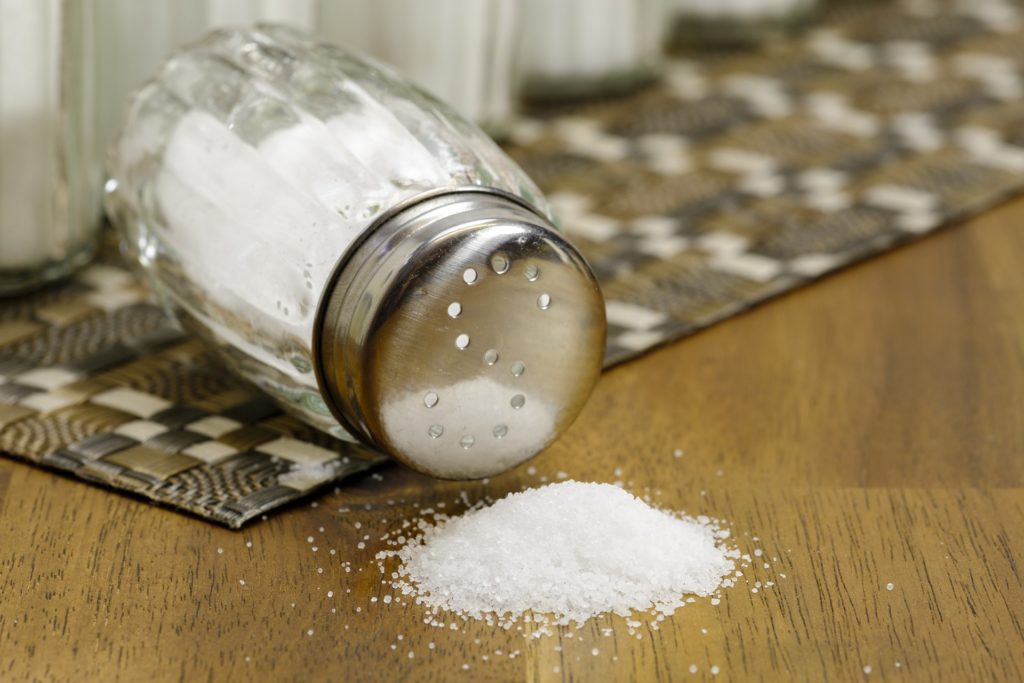
When sodium is in short supply, a host of chemical and hormonal messages signal the kidneys and sweat glands to hold onto water and conserve sodium. When you get more sodium than you need, the kidneys flush out the excess by making more, or saltier, urine.
If kidneys can’t get rid of enough sodium, though, it accumulates in the fluid between cells. Water inevitably follows sodium, and as the volume of this fluid increases, so does the one-quarter of blood. This means more work for the heart and more pressure on blood vessels. (3)
The average American adult should ingest a maximum of 2,300 milligrams of sodium every day — a far cry from the estimated 3,400 mg the average person actually consumes. As for the minimum physiological requirement for sodium is less than 500 mg a day — or less than the amount in one-quarter of one teaspoon of table salt. (4)
Effects of Too Little Sodium
If you consume sodium below their minimum needs the condition called hyponatremia can develop. It occurs when sodium becomes too diluted in the body, causing cells to swell up with water. Inflamed cells can cause:
- headache
- nausea
- fatigue
- altered personality
- lethargy
- confusion
- stupor
- muscle twitching or spasms
- seizures
- coma
- may even be life-threatening and death can result
In fact, acute hyponatremia is usually caused by drinking too much water, with insufficient salt intake. Athletes who drink excessive amounts of water but fail to replace the sodium they sweat out while exercising are at risk for sodium deficiency.
Effects of Too Much Sodium
Hypernatremia, a blood sodium level above 145 mEq/L, causes thirst, and due to brain cell shrinkage may cause confusion, muscle twitching or spasms. With severe elevation, seizures and comas may occur.
Health effects associated with excessive sodium consumption include:
- Stroke and cardiovascular disease
- High blood pressure
- Enlargement of the heart
- It can exacerbate renal disease
- Edema – swelling
- Stomach cancer
- Kidney disease
Death can be caused by ingestion of large amounts of salt at a time (about 1g per kg of body weight). (5)
According to the U.S. Department of Health and Human Services, a diet rich in potassium helps lessen the negative effects of a sodium-rich diet. Although limiting your daily sodium intake is the best method for preserving health, a high-potassium diet can help improve blood pressure, reduce the risk of kidney stones and maintain bone health. Foods naturally high in potassium include leafy green vegetables, avocados, prunes, bananas, and apricots. (6) And my most favorite source of potassium is Coconut Water.
If you like this content, subscribe to my newsletter 👇
Foods Naturally High in Sodium and Chloride
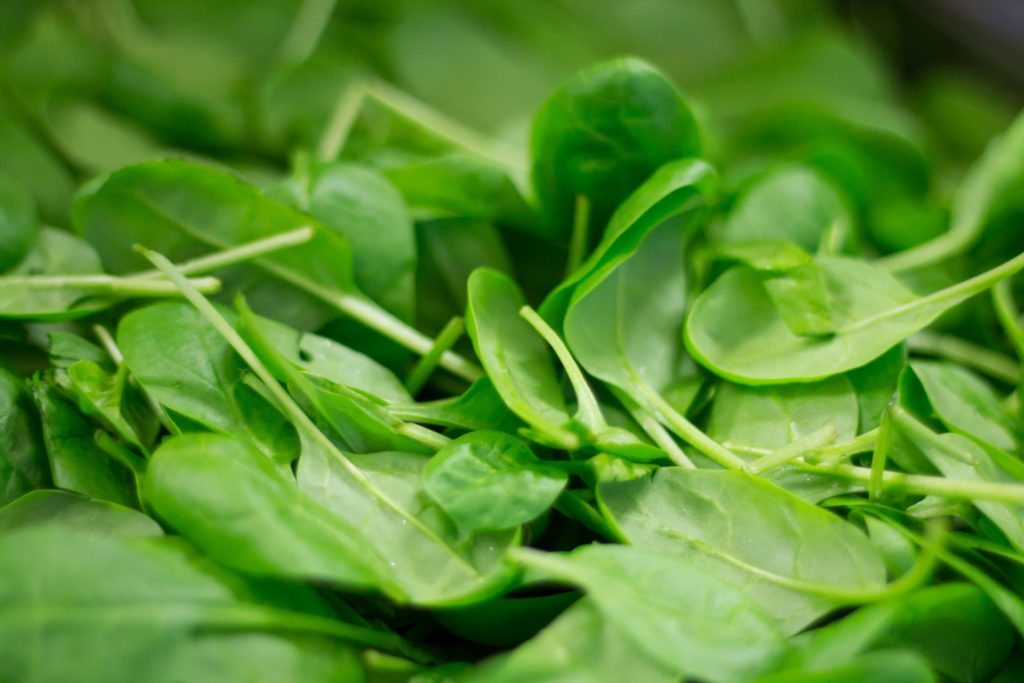
At the time when I was a runner, I was never concerned about too much salt intake. Although when I started practicing yoga, my teacher advised getting rid of salt from the diet. First I completely disagree with this theory, but by the time I realized that while you do need sodium in your diet, you don’t need to add salt to food to get it.
Here are the ways to get sodium into the diet:
- 12oz of celery juice naturally contains over 325 mg of sodium ( I am personally drinking it every single morning. Read more here […])
- spinach packs 125 milligrams of sodium per cup and a powerful salty taste when cooked without anything else
- a cup of cooked Swiss chard contains more than 300 milligrams of sodium
- one red or gold beet has around 65 mg of sodium
- a large stock of celery or carrot provides 50 mg of sodium. They also provide savory flavor in soups and other dishes without adding any extra salt
In addition, if you like soy sauce and its flavor, there is a great alternative to it – Bragg’s Liquid Aminos. It is for sure the healthiest version of soy sauce and you can use it to add a flavor to many dishes and increase the intake of sodium if you need to.
As for chloride, the higher amounts of chloride include seaweed, rye, tomatoes, lettuce, celery, and olives. (7)
Conclusion
Although salt contains a lot of essential elements that your body needs, there are lots of ways you can get enough of those into your diet without using any salt while preparing the food. Also, getting rid of packaged food that hides a lot of sodium, will help in controlling the sodium intake.
But if you are an athlete, make sure to replace the daily requirement of sodium by adding foods high in sodium into your menu (listed above). In addition, when doing high-intensity training consider adding a little bit of sea salt or Himalayan Pink Salt (my personal favorite) to some foods/drinks.
While I like to add some flavor to my food when preparing it, I do it now without adding any extra salt. Instead, I use natural herbs and spices that contain no salt.
To sum it all up, once you start develop the taste of the food without any added salt, you will truly enjoy its authentic flavor.
Stay happy and healthy!
Pin for Later 👇
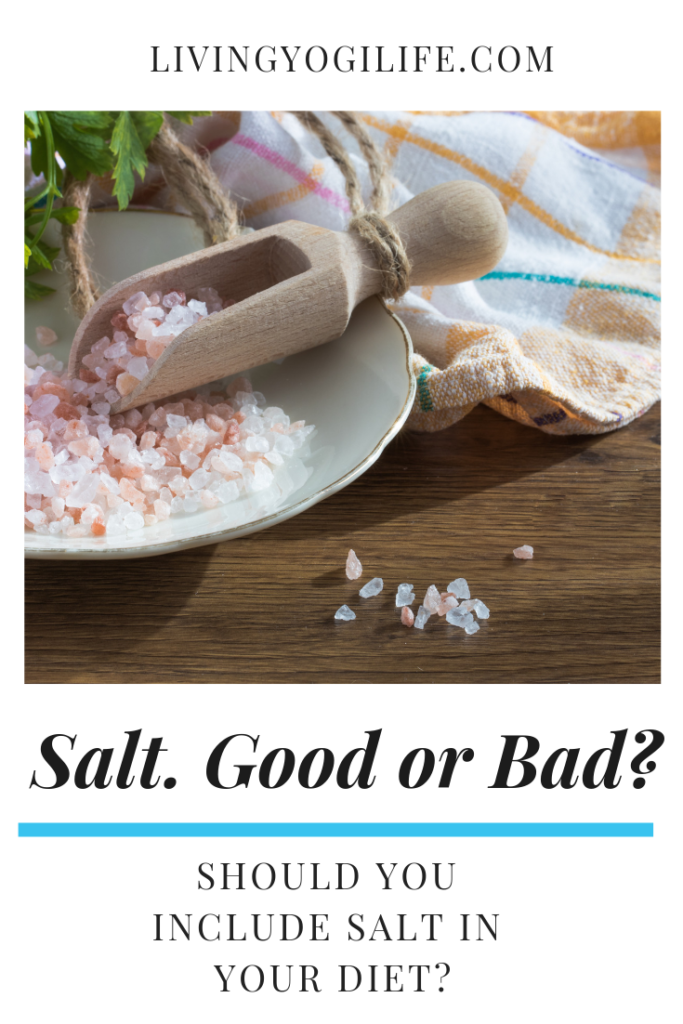
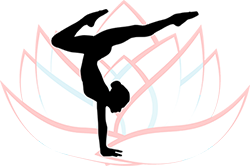
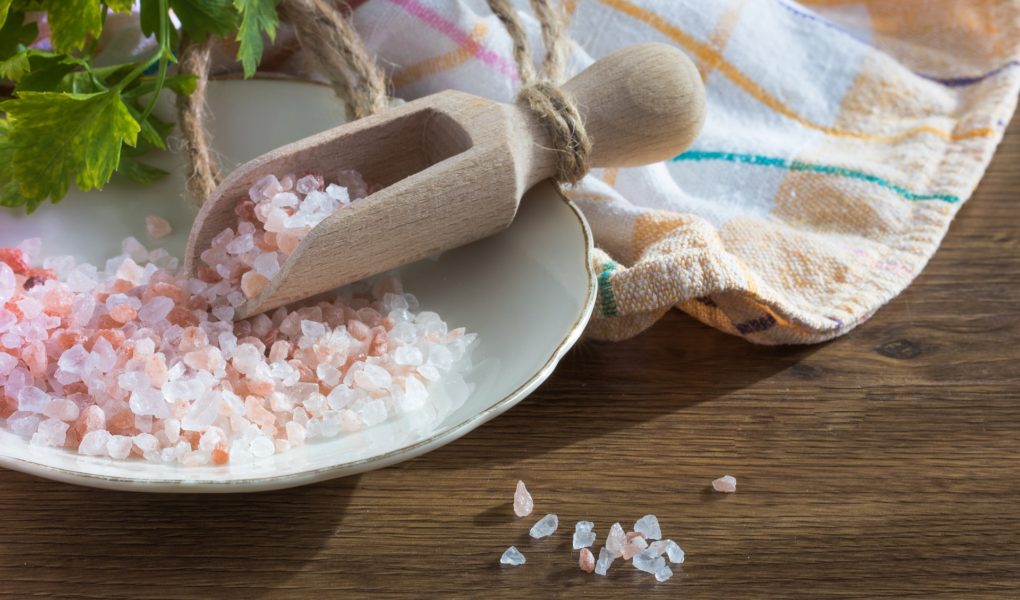


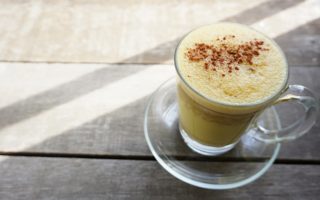












Great article. Thanks for sharing.
It’s so hard anymore to know what is good or bad for you b/c it feels like it is always changing. Thanks so much for the article!
Thanks so much for sharing this. I feel as sodium has gotten a bad rap for the past few years. I enjoy Real Salt in addition to the ones you listed above as well.
Suppppper interesting!
Great information. I always crave salty food when I am marathon training and sweat a ton. I loved your suggestions for healthier options.
Such great information! I learned a lot.
So much hidden salt in all our foods – read those labels! Overall great info!
Very informative! Yes we all hear about how bad salt is, but as with anything our bodies need it – just in moderation and the right kind. Thanks for all the helpful info!
Really appreciate this content, so informative! Thank you 🙂
Salt is such an interesting bpart of our diets. Really great information to think about in your post!
I vote good. I like salt… but I’m also very aware when I have too much…
It seems we all need the reminder. People focus so much on the low sodium that many can overdo it, and not get enough.
As with any diet/nutrition info, it’s so important to make sure we have the whole story! Thanks for sharing 🙂
This is so informative! It’s important to have a balance with sodium, but it can be easy to go overboard in both directions.
So true, Kat. Thank you for stopping by and commenting!
Thank you for this informative post! There is so much to learn about our bodies and how foods, etc. impact our bodies.
Thank you, Julie, for stopping by, reading and commenting!
Great info! I use a bit of sea salt occasionally. Most of my sodium comes from food. I drink celery juice too and add diced celery to many dishes. I love using herbs and other spices too. I want to try the pink Himalayan salt.
Thank you, Cindy!
We do not really eat processed foods. Once I started taking a 1/4 tsp of high-quality sea salt every morning I felt amazing! I was not getting enough!
Great post! Very informative. I guess I didn’t know that much about salt!
I don’t salt my food for the above reasons. And it’s a personal preference, I can’t taste salt.
This was an informative post ~ sometimes we don’t realize the important role salt plays in our bodies right along side the dangers of ingesting too much.
All excellent points!! we tossed table salt years ago due to all of the anti-caking agents and additives that are dumped into it. Since we cook for a living we’re big users of Pink Himalayan sea salt and coarse ground Kosher sea salt too. Thanks so much for sharing! 🙂
I totally agree about enjoying a food’s authentic flavor. It amazes me people that put salt on something before they have even tasted it!
I agree. I’ve seen that also 🙂